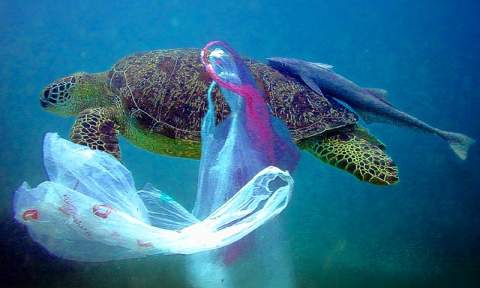We have all heard of the effects of beach and ocean pollution
on marine wildlife, especially on the various species of sea turtles, but
recent studies have shown that over the past twenty-five years, more and more
turtles are consuming higher amounts of plastic. An unnatural and unhealthy
food source, floating plastic resembles jellyfishes to hungry sea turtles and,
oddly enough, it is not old, but young, turtles that are consuming the deadly
plastic, a reproductive and behavioral concern. There are several proposed
solutions to this problem. One is to clean up the beaches and enforce stricter littering
laws so that sea turtles will encounter less plastic to eat, but the vast
amounts of pollution and ocean debris would force any contributions to be on a
massive, expensive scale and oceans are much harder to rid of pollution than beaches.
Another solution is to only produce biodegradable plastics monitored globally
from manufacturing to disposal so that all, if any, plastic is released into
the environment it will not harm the surrounding ecosystems. The obstacle in
this solution is the collaboration of a “global” effort to keep beaches and
oceans clean, while the amount of time and money involved in monitoring plastic
use would be substantial and doesn’t necessarily address the pollution already
floating in the waters. Personally, I think that known beaches of sea turtle
need to be strictly protected from pollution and while cleaning all of the world’s
oceans may be a tall order, beaches and shore sides should have no excuse for
not staying clean and pollution-free for the sake of sea turtles and other
marine life.
http://www.mnn.com/earth-matters/animals/blogs/rare-sea-turtles-eating-plastic-at-record-rate

No comments:
Post a Comment